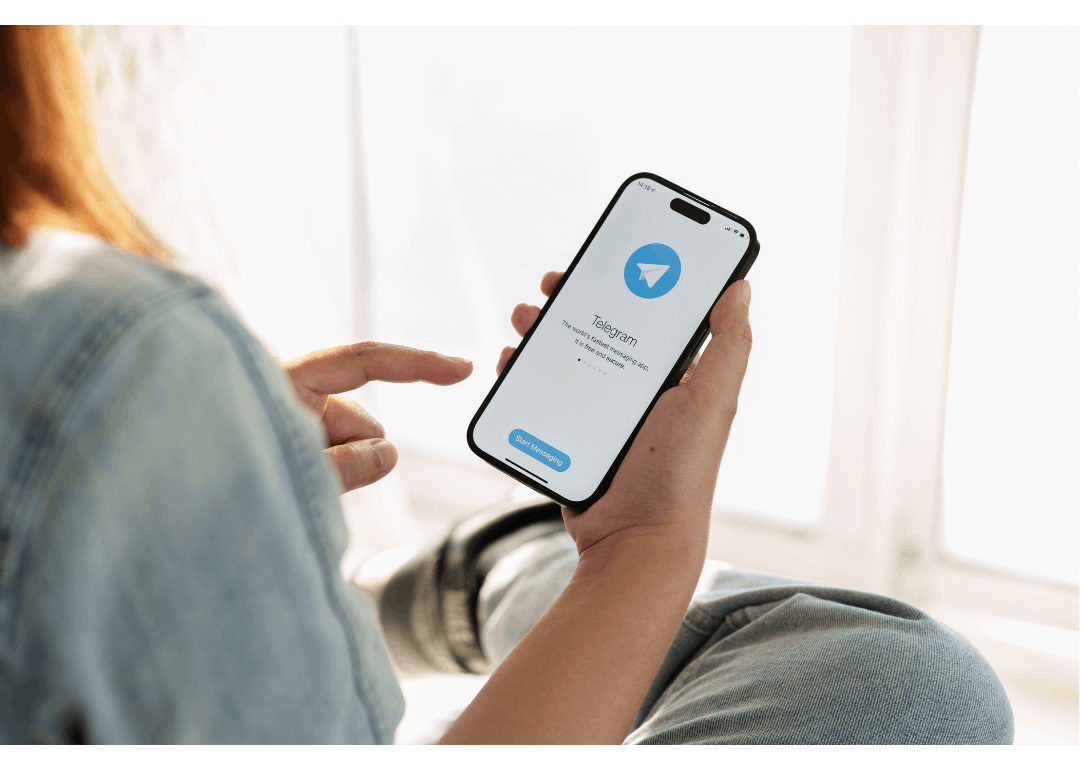Monetising Telegram Mini Apps: Strategies for Success

Exploring various monetisation models for developers and businesses
In the ever-evolving digital landscape, Telegram Mini Apps have emerged as a powerful platform for developers and businesses to engage with users in innovative ways. As the popularity of these mini apps grows, so does the potential for monetisation. This article delves into effective strategies for monetising Telegram Mini Apps, providing valuable insights for those looking to capitalise on this burgeoning market in the United Kingdom.
Whether you're a seasoned developer or a business exploring new revenue streams, understanding how to effectively monetise your Telegram Mini App is crucial for success.
Understanding Telegram Mini Apps
The Growing Popularity of Telegram Mini Apps in the UK
With Telegram's user base expanding rapidly in the UK, there is a significant opportunity for developers and businesses to reach a wide audience. The convenience and accessibility of mini apps make them an attractive option for users seeking seamless digital experiences.
Why Monetise Telegram Mini Apps?
Monetising your Telegram Mini App not only generates revenue but also adds value to your business by:
Creating Sustainable Income Streams: Diversifying revenue sources to enhance financial stability.
Increasing User Engagement: Offering premium features can encourage users to interact more with your app.
Supporting Development Costs: Funding ongoing maintenance and updates to improve user experience.
Monetisation Models for Telegram Mini Apps
There are several monetisation strategies to consider, each with its advantages and challenges. Here's an in-depth look at the most effective models:
In-App Purchases (IAP)
Overview:
In-App Purchases allow users to buy virtual goods or unlock additional features within your mini app. This model is particularly popular in gaming and productivity apps.
Implementation:
Virtual Currency: Users purchase in-app currency to spend on items or features.
One-Time Purchases: Unlock specific content or capabilities permanently.
Consumables: Items that can be used and repurchased, such as extra lives in a game.
Best Practices:
Offer Value: Ensure that the purchased items enhance the user experience meaningfully.
Transparent Pricing: Clearly display prices to build trust.
Easy Transactions: Simplify the purchasing process to reduce friction.
Examples:
Gaming Apps: Selling power-ups, skins, or access to new levels.
Productivity Tools: Unlocking premium features like advanced analytics or additional storage.
Subscription Services
Overview:
Subscriptions provide ongoing access to content or services for a recurring fee, offering a steady revenue stream.
Implementation:
Tiered Plans: Different levels of service at varying price points.
Free Trials: Allow users to experience premium features before committing.
Auto-Renewal Options: Simplify the renewal process for continued access.
Best Practices:
Consistent Value Delivery: Regularly update content or features to justify the subscription.
Flexible Plans: Offer monthly, quarterly, or annual subscriptions.
Customer Support: Provide excellent service to retain subscribers.
Examples:
News Apps: Access to premium articles or exclusive content.
Fitness Apps: Subscription-based workout programmes or coaching services.
Advertising
Overview:
Displaying advertisements within your mini app can generate revenue without charging users directly.
Types of Ads:
Banner Ads: Static or animated images placed at the top or bottom of the app.
Interstitial Ads: Full-screen ads that appear at natural breaks or transitions.
Native Ads: Ads that match the look and feel of the app content.
Implementation:
Ad Networks: Partner with networks like Google AdSense or local UK ad providers.
Targeted Advertising: Use user data (with consent) to display relevant ads.
Best Practices:
Non-Intrusive Placement: Avoid disrupting the user experience.
Ad Frequency Control: Limit the number of ads to prevent annoyance.
Quality Advertisers: Collaborate with reputable brands to maintain app integrity.
Examples:
Free Apps: Offering the app for free with ads as the primary revenue source.
Content Apps: Monetising through sponsored content or partner promotions.
Freemium Model
Overview:
The Freemium model offers basic features for free while charging for advanced functionality.
Implementation:
Core Features Accessible: Ensure the free version provides value to attract users.
Premium Upgrades: Offer enhanced features, content, or services at a cost.
Best Practices:
Balanced Offering: Avoid crippling the free version to encourage upgrades naturally.
Highlight Benefits: Clearly communicate the advantages of premium features.
User Onboarding: Guide users through the app to showcase premium potential.
Examples:
Music Apps: Free streaming with ads, premium subscription for ad-free listening and offline access.
Productivity Apps: Basic tools available for free, advanced features behind a paywall.
Sponsorships and Partnerships
Overview:
Collaborating with brands or businesses can open avenues for sponsorship deals or partnerships.
Implementation:
Sponsored Content: Integrate branded content relevant to your audience.
Co-Branded Features: Develop features in partnership with other companies.
Affiliate Marketing: Promote products or services and earn commissions on sales.
Best Practices:
Audience Alignment: Partner with brands that resonate with your user base.
Transparency: Disclose sponsorships to maintain trust.
Mutual Benefits: Ensure that partnerships offer value to both parties.
Examples:
Travel Apps: Collaborate with airlines or hotels for exclusive deals.
Health Apps: Partner with fitness brands for sponsored challenges or content.
Selling Digital Goods and Services
Overview:
Offer digital products or services directly through your mini app.
Implementation:
E-books and Courses: Sell educational materials.
Consulting Services: Provide expert advice or personalised services.
Customisable Products: Allow users to purchase and personalise digital items.
Best Practices:
Quality Assurance: Ensure products meet high standards.
Secure Transactions: Implement robust payment security measures.
Customer Support: Offer assistance before and after purchase.
Examples:
Educational Apps: Selling courses or certification programmes.
Art Apps: Selling digital artwork or design templates.
Data Monetisation
Overview:
Generate revenue by leveraging anonymised user data for research or marketing purposes.
Implementation:
Data Insights: Provide aggregated data to businesses or researchers.
Market Research: Offer insights into user behaviour trends.
Best Practices:
Privacy Compliance: Strictly adhere to GDPR and other data protection laws.
Anonymisation: Ensure no personal data can identify individual users.
User Consent: Obtain explicit permission from users.
Examples:
Analytics Apps: Providing industry trends based on user activity.
Health Apps: Sharing anonymised health data for research purposes.

Implementing Payment Systems
Integrating secure and efficient payment systems is crucial for monetisation.
Using Telegram's Payment API
Telegram provides a Payment API that supports transactions within the app.
Features:
Secure Transactions: Encryption and secure data handling.
Multiple Providers: Supports various payment providers, including Stripe and Payme.
User Convenience: Seamless payment experience without leaving the app.
Integrating Third-Party Payment Gateways
Alternatively, you can use external payment gateways compatible with your mini app.
Considerations:
Compatibility: Ensure the gateway integrates smoothly with your app's technology.
Currency Support: Offer transactions in pounds sterling for UK users.
Compliance: Adhere to PCI DSS standards for payment security.
Ensuring Compliance with UK Regulations
Financial Conduct Authority (FCA): Ensure your payment processes comply with FCA guidelines.
Consumer Rights Act 2015: Provide clear information about pricing and services.
Anti-Money Laundering (AML) Regulations: Implement measures to prevent fraudulent activities.
Legal and Ethical Considerations
Operating within the legal framework is essential for long-term success.
Data Protection and Privacy
GDPR Compliance: Protect user data and respect privacy rights.
Privacy Policy: Clearly outline data usage and obtain consent.
Data Security: Implement robust measures to prevent breaches.
Age Restrictions
Content Appropriateness: Ensure content is suitable for the intended audience.
Age Verification: Implement checks if offering age-restricted services.
Advertising Standards
Truthful Advertising: Comply with the UK's Advertising Standards Authority (ASA) regulations.
Avoid Misleading Claims: Ensure all promotional content is accurate.
Intellectual Property Rights
Licensing: Obtain necessary permissions for third-party content.
Original Content: Create unique assets to avoid infringement.
Best Practices for Successful Monetisation
Focus on User Experience
Minimal Disruption: Integrate monetisation without hindering app usability.
Feedback Mechanisms: Encourage user feedback to improve services.
Continuous Improvement: Regularly update and enhance features.
Transparency and Trust
Clear Communication: Be upfront about costs and data usage.
Responsive Support: Address user concerns promptly.
Ethical Practices: Prioritise user well-being over aggressive monetisation.
Market Research
Understand Your Audience: Tailor monetisation strategies to user preferences.
Competitive Analysis: Learn from other successful apps in the UK market.
Adaptability: Be willing to adjust strategies based on market trends.
Future Trends in Monetising Telegram Mini Apps
Integration of Emerging Technologies
Artificial Intelligence: Personalised user experiences to enhance engagement.
Blockchain: Secure transactions and potential for new monetisation models.
Expansion of Payment Options
Cryptocurrency Payments: Offering alternative payment methods.
Mobile Wallets: Integrating popular UK payment apps for convenience.
Regulatory Changes
Data Protection Laws: Staying updated with changes in legislation.
Tax Regulations: Understanding implications for digital goods and services.
User Behaviour Shifts
Demand for Privacy: Users prioritising apps that respect their privacy.
Preference for Ethical Brands: Aligning monetisation with social responsibility.
Conclusion
Monetising Telegram Mini Apps presents a wealth of opportunities for developers and businesses in the United Kingdom. By carefully selecting and implementing the right monetisation strategies, you can create sustainable revenue streams while providing value to your users.
Success lies in balancing profitability with user experience, maintaining transparency, and staying informed about legal obligations. As the digital landscape continues to evolve, those who adapt and innovate will lead the way in this exciting domain.
At Mighty Labs, we specialise in developing and monetising Telegram Mini Apps tailored to your business needs. Contact us today to explore how we can help you succeed in this dynamic market.
FAQs
1. What are Telegram Mini Apps?
Telegram Mini Apps are web-based applications that run within the Telegram messaging platform, offering interactive features without the need for users to install separate apps.
2. How can I monetise my Telegram Mini App?
You can monetise through various models such as in-app purchases, subscriptions, advertising, freemium models, sponsorships, selling digital goods, and data monetisation.
3. Is it legal to monetise Telegram Mini Apps in the UK?
Yes, it is legal provided you comply with UK laws and regulations related to data protection, consumer rights, advertising standards, and financial transactions.
4. How do I integrate payment systems into my Mini App?
You can use Telegram's Payment API or integrate third-party payment gateways that support secure transactions and comply with UK regulations.
5. What are the best practices for successful monetisation?
Focus on user experience, maintain transparency, ensure legal compliance, and continuously improve your app based on user feedback and market trends.
6. Can I use advertising to monetise my Mini App without affecting user experience?
Yes, by using non-intrusive ad placements, controlling ad frequency, and collaborating with quality advertisers, you can monetise through advertising while maintaining a positive user experience.
7. How important is GDPR compliance when monetising my Mini App?
GDPR compliance is crucial as it governs how you collect, use, and protect user data. Non-compliance can result in legal penalties and damage to your reputation.
8. What future trends should I be aware of in monetising Telegram Mini Apps?
Emerging technologies like AI and blockchain, shifts in user preferences towards privacy and ethical practices, and changes in regulations are key trends to watch.
Ready to monetise your Telegram Mini App effectively? Reach out to Mighty Labs for expert guidance and support.
Ready to have a conversation?
Book a call with us